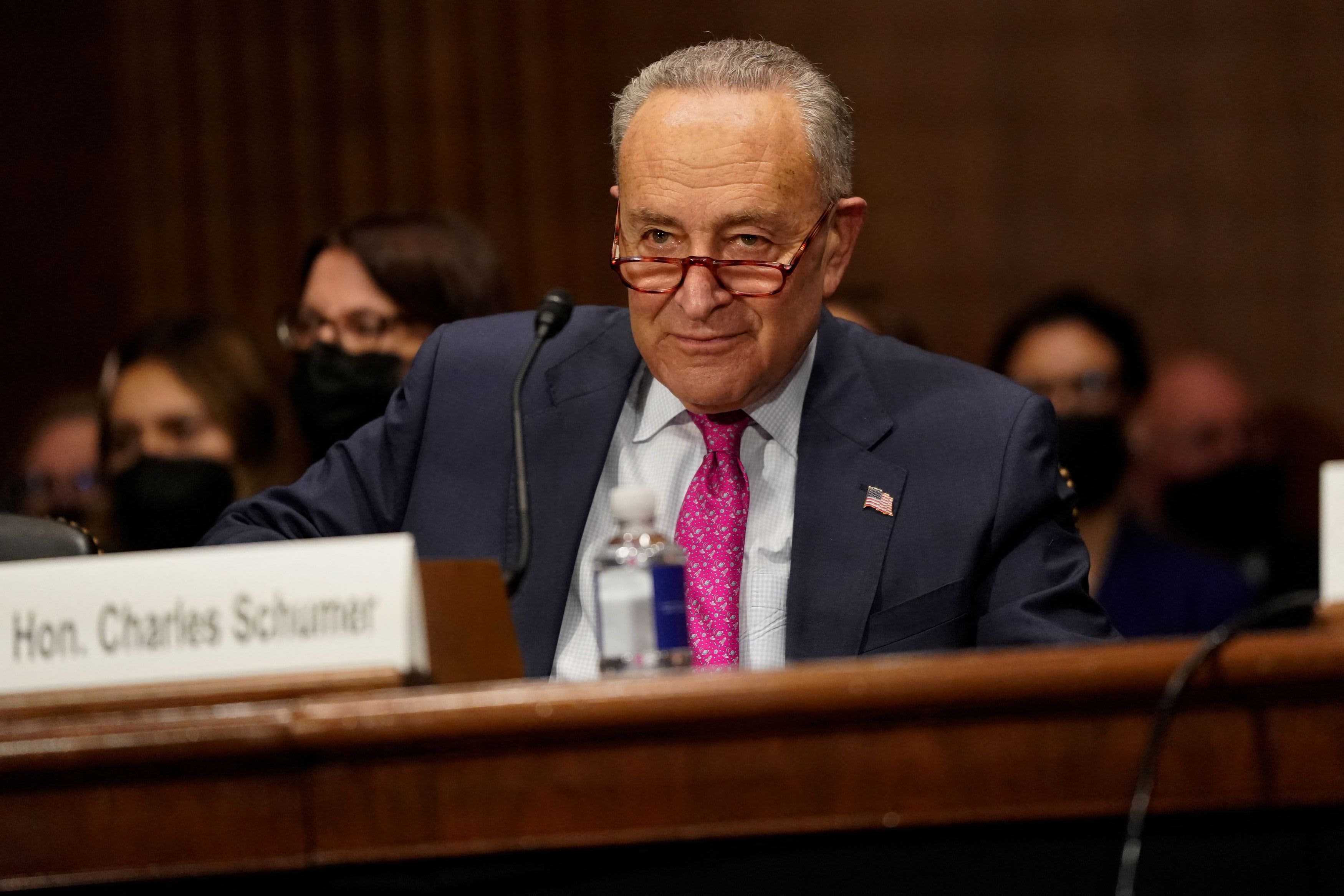For Democrats who view voting rights as the fight of their time, the coming weeks in the Senate will prove pivotal.
Senate Majority Leader Chuck Schumer, D-N.Y., will try this month to pass a federal elections bill backed by his full 50-member caucus. If Republicans block the plan as expected, the Senate will debate possible rules changes to bypass the filibuster and allow a voting-rights measure to pass with a simple majority, Schumer wrote to Democrats on Monday.
“Over the coming weeks, the Senate will once again consider how to perfect this union and confront the historic challenges facing our democracy. We hope our Republican colleagues change course and work with us,” he wrote.
“But if they do not, the Senate will debate and consider changes to Senate rules on or before January 17, Martin Luther King Jr. Day, to protect the foundation of our democracy: free and fair elections,” he continued.
The bill known as the Freedom to Vote Act faces an uphill climb in the Senate despite unified Democratic support for it. Sens. Joe Manchin, D-W.V., and Kyrsten Sinema, D-Ariz., have so far opposed changing filibuster rules even once to pass the legislation.
Without a tweak to Senate rules, Democrats would have to win over 10 Republicans to pass the bill. The task appears all but impossible as Republicans oppose any new legislation that would give the federal government a larger role in how states run elections.
Democrats argue the country needs a voting-rights bill more than it has in decades after Republican-led legislatures in states including Georgia and Texas passed restrictive laws last year. The renewed push also comes about a year after a mob of Donald Trump’s supporters, fueled by the former president’s conspiracy theories that widespread fraud led to President Joe Biden’s 2020 election victory, stormed the U.S. Capitol on Jan. 6 while lawmakers tallied Biden’s win.
Democrats also want to pass legislation before the 2022 midterm elections in November.
The party tried and failed to pass voting-rights bills several times last year. Republicans blocked every effort.
When the Freedom to Vote Act failed in October, Senate Minority Leader Mitch McConnell, R-Ky., accused Democrats of trying to “take over all of American elections themselves.”
Congress has of course passed prior legislation to protect the right to vote, most notably the Voting Rights Act of 1965 that aimed in part to bar state and local racial discrimination in voting.
The Freedom to Vote Act came about in the fall as a compromise. Some centrist Democrats worried the For the People Act, an earlier elections bill and a top priority for the party, went too far and was too hard to implement.
The current legislation would expand early and absentee voting and make it easier for people to comply with state voter ID laws. It would make automatic voter registration the national standard and restore incarcerated people’s right to vote after they finish their sentences.
The bill would also make Election Day a national holiday.
In making his case to skirt the filibuster, Schumer contended that Democrats should approve an elections bill with a simple majority because some Republican-held state legislatures also have that ability.
Bypassing the filibuster to pass voting legislation gained traction within the party after Democrats temporarily changed Senate rules to increase the U.S. debt ceiling with a simple majority last month. Biden has also backed making a filibuster carveout to pass an elections bill.
Speaking on the Senate floor in December, Sen. Raphael Warnock, D-Ga., said that if “Democrats alone must raise the debt ceiling, then Democrats alone must raise and repair the ceiling of our democracy.”
He asked: “How do we in good conscience justify doing one and not the other?”
